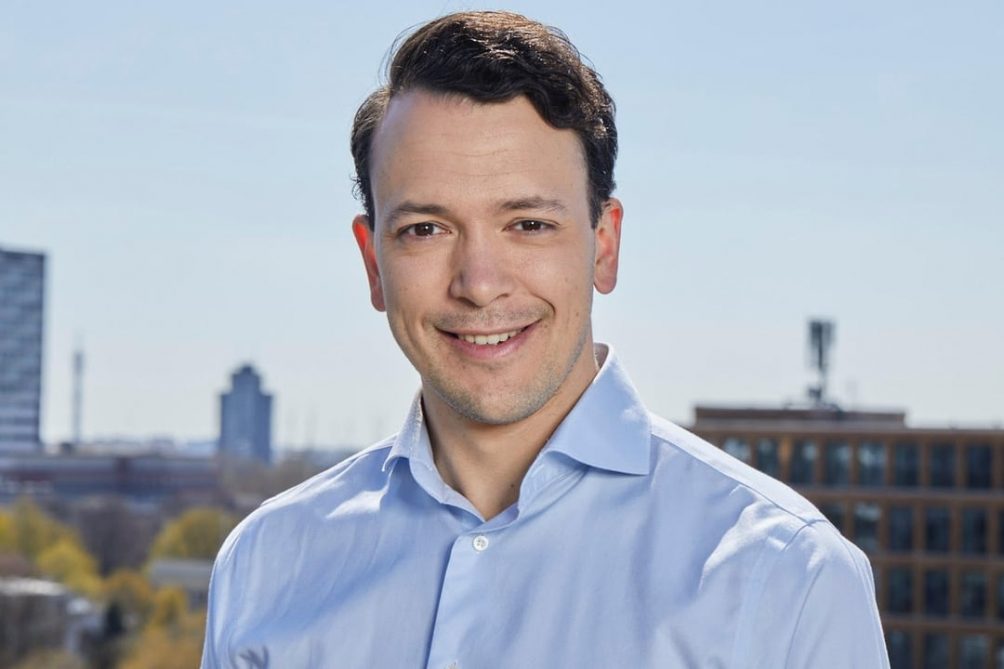
Things are going well for Shypple, the ‘Booking.com of shipping‘, which connects thousands of companies through an online platform. The young company recently took the next big step. It now uses a filter system to convert shipping emissions into plant food. “The system is installed directly on board ships and CO2 never even has a chance of being released into the air,” says CEO Jarell Habets. Moreover, the company is making shipping more sustainable in even more ways.
What does Shypple do exactly?
Shypple’s platform enables a centralised form of communication where everyone can see everything that is being reported about shipping and shipments. The data concerns containers that have a number, purchase orders and tracking. No email exchanges are needed, because it is clear at a glance where containers are all located. A booking is made with just a few clicks.
The booking platform enables stakeholders to quickly anticipate events that affect deliveries. What’s more, the platform also allows people to chat with suppliers on the other side of the world, for instance.
The digital freight forwarder has only been in operation since 2017, but already it can no longer be considered a start-up. Over the past few years, the company has grown by a factor of two. “Whereas in the same period we saw no such growth, or even worse, a decline in volumes at our biggest competitors,” says Habets with a sense of pride. The rapid growth has given the company room to embark on new developments.
Reusing CO2
This has also led to a new partnership with Value Maritime. The initiative helps Shypple’s clients to cut down on their carbon footprint thanks to Value Maritime’s Filtree and Carbon Capture system. This system filters sulphur, particulates and CO2 from the exhaust fumes of ships. The CO2 is then transported to greenhouses inside batteries. These can then re-use the CO2 to grow crops. As such, the solution is especially interesting for transporters of fresh goods. The services will be available to Shypple users from September onwards.

“Maritime shipping accounts for 2.5 per cent of all CO2 emissions worldwide”, Habets explains. “The great thing about Value Maritime’s solution is that it can be installed directly on board ships. That way, CO2 does not even have a chance to be emitted into the air and users of the Shypple platform are able to make a direct contribution to a cleaner world because the CO2 is used to boost plant growth.”
There are currently 60,000 oil-powered ships in the world. It will take some time before these ships are all converted or replaced by battery propulsion. The filter system will be particularly useful in the transitional period.
Positive reactions
The first reactions to the system have been favorable. These days, almost everyone is well aware that we need to find solutions together if we are to achieve the climate targets. This is also the case in the shipping industry, Habets notes. “Those clients who are already using it are all really positive. Especially since we have a lot of customers in the fresh produce market, who can potentially take advantage of it because the emissions are reused in greenhouses.”
A clean shipping industry
The new filter system is a part of Shypple’s mission to create a clean future for the shipping industry. For example, its clients also have the option of planting trees in partnership with ForestNation. They can also choose organic fuel through a partnership with Goodshipping, the Institute for environmental and sustainable energy sources in Amsterdam.
“We like to invest in young technologies that can potentially make a big impact but can have a real hockey stick graph effect. It is expensive to use them at first, which was also the case with electric vehicles and wind turbines, for instance. But once there are enough customers, it becomes cheaper and cheaper and more accessible to more and more people. We are keen to be that first customer,” Habets adds.
‘Logistics sector has got to reinvent itself’
Over the next few years, the rate at which the shipping industry is going green is set to rise sharply, Habets predicts. “I think it’s great to see more and more initiatives springing up and increasingly more organizations are taking a hard look at the industry and their role in it. So, when I see that, I do have faith in it.” But at the same time, a great deal of work still needs to be done before any major steps can be taken. “The logistics sector actually has to reinvent itself as well, and new collaborations are crucial, in my opinion. I wonder what this logistics revolution will look like, but we are absolutely doing our bit to help make that happen.”








